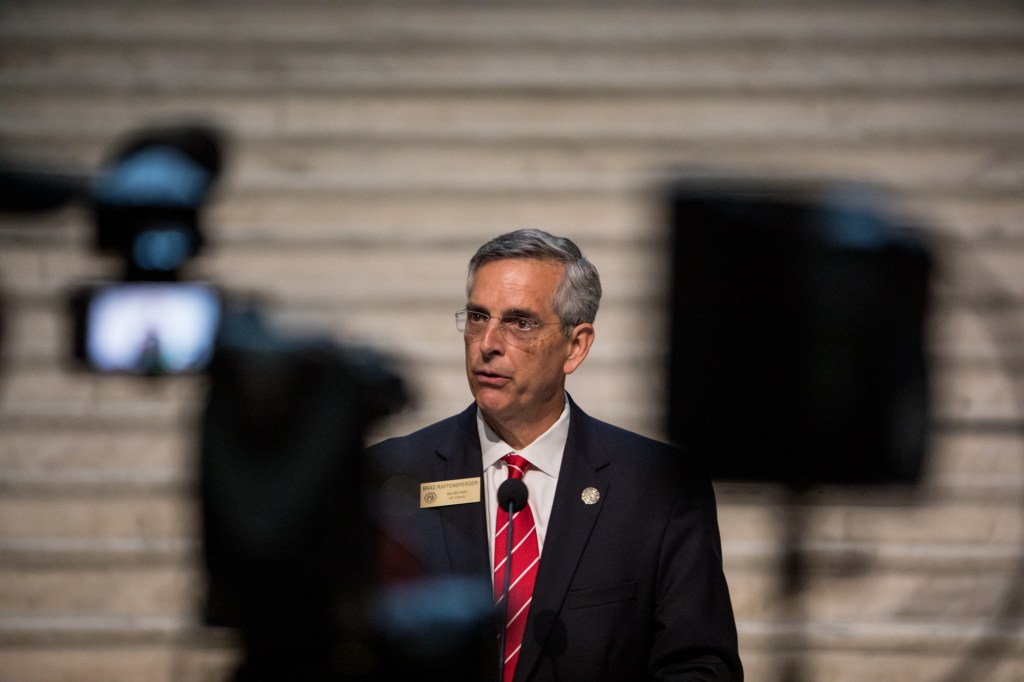Sec. of state: COVID-19 still a ‘potential threat’ to elections
Published 2:15 pm Thursday, May 28, 2020

- Sec. of State Brad Raffensperger made a plea to Georgians to return their absentee ballots to reduce lines at polling places on the June 9 primary during a press conference on May 28 at the Capitol.
ATLANTA — Secretary of State Brad Raffensperger pleaded with Georgians Thursday to turn in their absentee ballots and have “patience” at the polls as the COVID-19 outbreak has forced massive changes to the elections system.
With less than two weeks before the June 9 primary, more than 1.5 million Georgians have requested absentee ballots but only 40% of those voters have returned the ballots to the state while nearly all requested absentee ballots — 90% — have been sent to voters mailboxes, Raffensperger said.
While vote-by-mail has propelled partisan politics, Georgia’s Republican elections chief has maintained a push for as many voters as possible to use the absentee ballot process to reduce risk of coronavirus spread, long lines at polling places and ease the process for disabled voters who must vote in person.
“We have cut through the political rhetoric, ignored the talking heads and put you — the voter — first,” he said during a Thursday press conference. “We have maintained your right to choose in this election. If you want to vote from the safety of your home, you can. If you prefer in-person, you may.”
But early voting hasn’t been without hiccups caused by the pandemic — a number of polling locations across the state have closed and some Fulton County voters are still waiting on ballots after a computer server error caused a backlog of email applications.
Raffensperger said Fulton County elections officials have remedied the backlog, and of the 127,800 absentee ballot requests in the county, 95,000 have been mailed out and 88,540 voters have received them.
“I know we’re seeing the reopening moving forward,” Raffensperger said, “but the fact remains that there are still fewer polling places in some counties. … The COVID threat is still a potential threat to orderly elections and in-person voting.”
Raffensperger asked voters to be patient and said there will be “plenty of time” to vote if they haven’t gotten their ballot yet and implored those who have received a ballot to fill it out and send it back.
The deadline for absentee ballots to be received by election officials is 7 p.m., June 9, but if voters don’t get their ballots in the mail before June 5, he said, they will be “at the mercy of the United State Postal Service.”
Voters can also return their absentee ballots to drop boxes set up in many counties by 7 p.m. election day.
In-person voters face a different kind of election if they choose to show up at the polls.
A 10-person voting line will span 60 feet to follow social distancing guidelines posing the threat of long lines, poll workers will don masks and gloves and 60,000 styluses have been sent out to counties to ensure best sanitation practices.
Elections results may take longer to be released because of the large number of absentee ballots, he said. The state purchased high-speed scanners to deploy to counties with large numbers of absentee ballots to assist in counting on election night.
The state election board also ruled earlier this month that counties are allowed to start handling — but not counting — absentee ballots June 1 to lessen the blow to local election workers.




